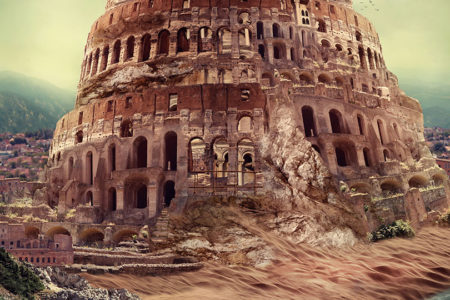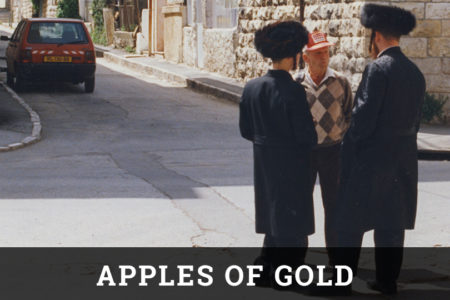The Nations at Armageddon
Although the Bible deals primarily with Israel and the Messiah, it is surprising to realize how much the Scriptures teach about the Gentile nations and their future role in God’s prophetic plan. The Hebrew word for Gentile is goy, and it appears 514 times in the Old Testament. The Greek word is ethnos, which appears 164 times in the New Testament. Both of these words are translated in the Authorized Version as nation, gentile, or, in a few cases, heathen. The word nation refers to a defined body or group of people. Although the word occasionally can refer to Israel (see, e.g., Gen. 12:2; Ex. 33:13; Dt. 4:6–7), it usually refers to the Gentile nations of the world.
References to the future of the nations abound in the prophetic books of the Old Testament as well as in the Revelation in the New Testament. Four passages are helpful in summarizing the role that the nations will play in the great final conflict—generally known as Armageddon (Joel 3; Zech. 14; Rev. 16; 19).
In military terminology, there is a difference between a single battle and a longer military campaign, or an even longer war. While popularly referred to as the Battle of Armageddon, this final raging conflict will be more of a campaign than a single battle. It is better to refer to it as the Campaign of Armageddon because it will encompass a number of separate battles. What role will the nations play in this great conflict?
The first fact to consider in answering this question is that the Lord is the one who will gather the nations. Note the following passages:
For, behold, in those days, and in that time, when I shall bring again the captivity of Judah and Jerusalem, I will also gather all nations, and will bring them down into the Valley of Jehoshaphat, and will judge them there for my people and for my heritage, Israel, whom they have scattered among the nations, and parted my land (Joel 3:1–2).
Behold, the day of the Lᴏʀᴅ cometh, and thy spoil shall be divided in the midst of thee. For I will gather all nations against Jerusalem to battle (Zech. 14:1–2).
Although the nations will converge on the Middle East to struggle for power, attack Israel, and oppose the Lord, it will be the sovereign Lord who will draw them there. At that time, the nations will be judged, and God will use the nations’ hatred for one another to bring about their own destruction. From the human perspective, the nations will gather to wrest world leadership from the Antichrist. In the satanic purpose, the armies will gather to oppose the Lord and His anointed. In the divine purpose, the armies will gather to experience their own judgment. Psalm 2:1–5 prophetically describes this scene:
Why do the nations rage, and the peoples imagine a vain thing? The kings of the earth set themselves, and the rulers take counsel together, against the Lᴏʀᴅ, and against his anointed, saying, Let us break their bands asunder, and cast away their cords from us. He who sitteth in the heavens shall laugh; the Lord shall have them in derision. Then shall he speak unto them in his wrath, and vex them in his great displeasure.
The second fact is that the campaign will rage throughout the land of Israel. The broad expanse of the plain of Jezreel in Israel’s north, popularly referred to as the “Valley of Armageddon,” although often depicted as the locale of this conflict, will actually be the staging area for the armies. “And he gathered them together into a place called in the Hebrew tongue Armageddon” (Rev. 16:16). But the conflict will not be limited to this valley alone. A comparison of Scriptures indicates that at least two other locales will be scenes for this mighty war. Far to the south is the ancient land of Edom, home of the fabled city of Petra. Isaiah 63:1–6 describes the Lord’s return from judging the nations in that locale:
Who is this that cometh from Edom, with dyed garments from Bozrah? This that is glorious in his apparel, traveling in the greatness of his strength? I who speak in righteousness, mighty to save. Why art thou red in thine apparel, and thy garments like him who treadeth in the winefat? I have trodden the winepress alone, and of the peoples there was none with me; for I will tread them in mine anger, and trample them in my fury; and their blood shall be sprinkled upon my garments, and I will stain all my raiment. For the day of vengeance is in mine heart, and the year of my redeemed is come. And I looked, and there was none to help; and I wondered that there was none to uphold. Therefore, mine own arm brought salvation unto me, and my fury, it upheld me. And I will tread down the peoples in mine anger, and make them drunk in my fury, and I will bring down their strength to the earth.
The other location that will serve as a battlefield in this campaign will be Jerusalem itself: “Let the nations be wakened and come up to the Valley of Jehoshaphat; for there will I sit to judge all the nations round about” (Joel 3:12); “And it shall come to pass, in that day, that I will seek to destroy all the nations that come against Jerusalem” (Zech. 12:9). Most scholars believe that the Valley of Jehoshaphat is a reference to the Kidron Valley on the ease of Jerusalem.
It appears, therefore, that the campaign will begin in the Valley of Jezreel in the north, continue at Edom in the south, and then culminate in its final fury in the Holy City itself. It is striking to note that Revelation 14:20 describes the bloody battle as reaching over a space of 1,600 furlongs, or approximately 180 miles. This is the actual distance between the Valley of Jezreel and Edom and passes right by Jerusalem!
The last fact to note is that Jesus Himself will destroy the gathered nations at His glorious Second Coming. John beheld a rider on a white horse coming out of heaven:
And I saw heaven opened and, behold, a white horse; and he that sat upon him was called Faithful and True, and in righteousness he doth judge and make war. His eyes were like a flame of fire, and on his head were many crowns; and he had a name written, that no man knew, but he himself. And he was clothed with a vesture dipped in blood; and his name is called The Word of God. And the armies that were in heaven followed him upon white horses, clothed in fine linen, white and clean (Rev. 19:11–14).
This is clearly a description of Jesus as the righteous judge, since His name is “The Word of God”—John’s favorite title for the Lord Jesus (see Jn. 1:1). The scene is one of judgment: “And out of his mouth goeth a sharp sword, that with it he should smite the nations, and he shall rule them with a rod of iron; and he treadeth the winepress of the fierceness and wrath of Almighty God” (Rev. 19:15). The following passage then describes, in picturesque language, how the Messiah Himself will slay the gathered armies of the nations, including the beast and the false prophet (Rev. 19:17–21). In contrast to the joyous Marriage Supper of the Lamb (Rev. 19:7–10), there will also be a very different supper—one for the birds of prey!
Thus will end, in one cataclysmic blow, the power of the Gentile nations, which have controlled Jerusalem from the time of Nebuchadnezzar in 605 BC. Satanic control of the Gentiles will also end, especially in oppressing the nation of Israel.
Satan, the god of this world, will also be dealt with, and, according to Revelation 20:1–3, he will be cast in the “bottomless pit,” where he will be inactive for the entire length of the thousand-year reign of Christ. The Gentile population of the world as a whole will then be judged at a separate judgment to follow (Mt. 25:31–46).
The inglorious end of Gentile power was prophesied in Daniel 2, where the great image was smashed when struck by the stone cut out without hands. Then the “times of the Gentiles” (Lk. 21:24) will terminate. Jerusalem no longer will be trodden under foot by Gentile overlords, and Israel will once again be exalted as the King of kings reigns from Zion. As we consider the practical application of this, it is good to return to the Psalm referred to earlier. After describing the wrath of the gathered nations (Ps. 2:1–5), the Lord provided His solution to the Gentile fury:
Yet have I set my king upon my holy hill of Zion. I will declare the decree: The Lᴏʀᴅ hath said unto me, Thou are my Son; this day have I begotten thee. Ask of me, and I shall give thee the nations for thine inheritance, and the uttermost parts of the earth for thy possession. Thou shalt break them with a rod of iron; thou shalt dash them in pieces like a potter’s vessel. Be wise now, therefore, O ye kings; be instructed, ye judges of the earth. Serve the Lᴏʀᴅ with fear, and rejoice with trembling. Kiss the Son, lest he be angry, and ye perish from the way, when his wrath is kindled but a little. Blessed are all they who put their trust in him (Ps. 2:6–12).
The only way in which Gentiles will escape the sure judgment of God is by placing their trust in God’s Son—the Lord Jesus Christ. Will you trust Him today?








